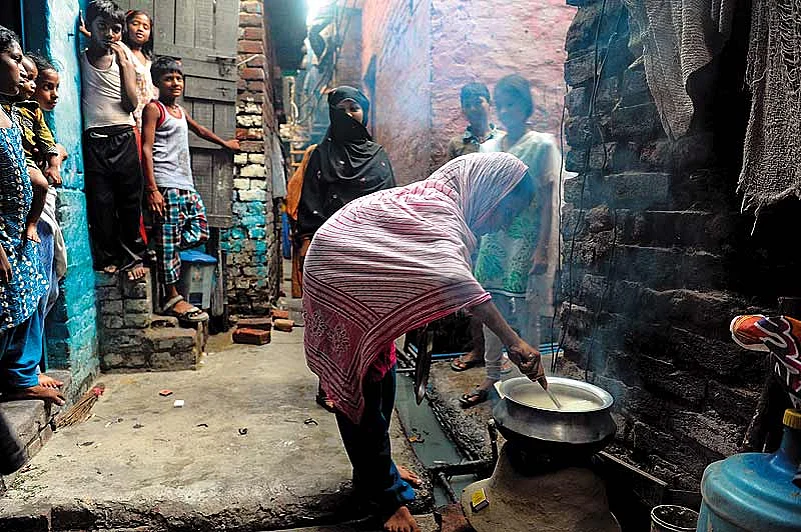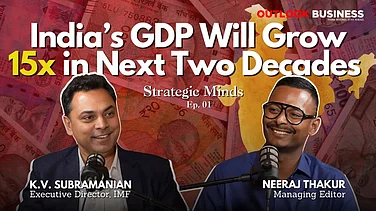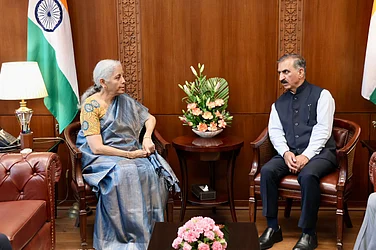Fisc Vs Subsidies
Ideas put forth by Kelkar may lose to poll compulsions
- Fuel, fertiliser and food form the bulk of subsidies government is desperately trying to reduce
- Food subsidies will of course go up when the UPA’s landmark Food Security Bill is put into operation
- The legislation has seen many changes in how much foodgrain is supplied to whom. The final decision is to be taken by year-end.
- The Vijay Kelkar report argues that government has to prioritise between food security and other subsidies like fuel and fertilisers
- As UPA sees the Bill as crucial for prospects in 2014, expect politics—not economics—to rule the roost
***
No heated debate on subsidies is ever really conclusive, embroiled as it is in votebank politics, economics and the needs of poor (in that order). This is evident in the way subsidies in fuel and fertilisers are being doled out—sadly, the rich and not-so-poor benefit more than the poor. Despite several government-appointed committees arguing for cutting diesel subsidy, which has led to a huge increase in the number of suvs and luxury diesel cars on the road, it was cooking gas that was targeted.
The irony is that this came after a sustained government campaign that managed to get thousands of poor families to switch from highly subsidised kerosene to cooking gas. Now, with the rationing of subsidised LPG cylinders to just six a year, it is the poor families that will be hit the hardest—the non-subsidised LPG cylinders cost over Rs 850, and the “black market” rate is well over Rs 1,000.
Of course, all this ‘concern’ and proposed ‘action’ on subsidies comes at a time when the government is seriously looking at ways to trim them. Given that it is staring at the likelihood of missing the fiscal deficit target of 5.1 per cent of GDP by March-end next year by a long shot, there seem to be not many options. Alarm bells were rung recently by an expert team headed by Vijay L. Kelkar. His report warned that unless action is taken now, the fiscal deficit could rise to 6.1 per cent and impact the government’s ability to promote socio-economic development for creating jobs.
Defending his stance, Kelkar states, “Nobody is arguing against food subsidies. Our concerns are the unjustified or inequitable subsidies, which are not going to the very poor, be it LPG, fertilisers or food.” With the government talking of expanding food subsidies—indeed, the proposed Food Security Bill is touted as the UPA-II’s landmark legislation before the 2014 polls and has chairperson Sonia Gandhi’s absolute backing—Kelkar stresses the need to ensure it “does not go to people who do not deserve it”.
His report has urged an overall subsidies cap of 1.7 per cent but leaves it to the government to decide how much for each sector. He also suggests that the periodic increase in minimum support price of food grains should be reflected in the PDS prices. C. Rangarajan, chairman of the PM’s economic advisory council (PMEAC), admits to sharing Kelkar’s concerns on containing fiscal deficit to 1.7 per cent. “If the government feels food security is extremely important and they have a commitment to ensure it, then they should correspondingly reduce the subsidy for petroleum and fertilisers to ensure we keep to our target of lowering total subsidies as it is important to bring down the fiscal deficit,” he states.
Soon, the food subsidies under the proposed Food Security Bill (currently undergoing scrutiny from the standing committee of Parliament even as it is being tweaked by policymakers to juggle concerns on the ballooning subsidy bill and food supplies) will see a sea change. Not necessarily for the better, opine many experts who have been fighting for enhancing the coverage while dropping the proviso for a ‘priority’ category.
They feel there can be no compromise on food security, as India accounts for 48 per cent of malnourished children globally. nac member N.C. Saxena, for instance, says the whole debate over food subsidies is irrelevant as the government has a hoard of over 80 million tonnes foodgrains. “This hoard has to reach people and must not be wasted due to lack of handling and stocking facilities. Despite what the government says, the wastage is not less than 15 per cent,” says Saxena.
The persistent starvation of yore may not be seen today, but millions go to bed without two square meals a day, while thousands die due to hunger-related diseases. Biraj Patnaik, senior advisor to SC commissioners on food security, wonders where reforms are going. “What the government is promising through the Food Security Bill is less than what they are already doing,” he points out.
With Aadhar or UID numbers not yet provided to much of the targeted population, civil society members are sceptical about the proposed rollout of the right-based food security scheme, particularly cash transfers to bank accounts. Describing it as “doing the right thing with the wrong instrument”, economist S.L Rao says, “Giving out money has to be efficient”–not possible without the UID and banking correspondents in place.
Steering the course of the debate is Union food minister K.V. Thomas, who is hopeful of the parliamentary standing committee completing its final report and submitting it to the Lok Sabha speaker in a month. “In the food sector, one cannot look at the financial aspect alone. It has to be examined in the light of social commitment and malnutrition (which is why millet is being introduced in PDS),” the minister says. On the cash transfer proposal, the minister clarifies that the decision would be left to the states while efforts are on to upgrade the PDS chain. So far Delhi and Bihar are among the states keen to deploy cash transfers, under which the woman head will be the custodian.
As the government targets finalising the contours of the scheme by the end of the year for early rollout, activist Harsh Mander says the issue of resources and subsidies “is far more complex and nuanced than it is made out to be. It is reflective of the power of one particular beneficiary—the corporates.” As activists worry about government plans to replace subsidised food with cash, the question remains about social and ethical choices. Not economics!
This also applies to the PM’s overdrive on ‘reforms’ in the past couple of weeks. Before the dust has settled on the decision to allow 51 per cent FDI in multi-brand retail, the Union cabinet has given the green signal to allowing 26 per cent FDI in the pension sector and hiking the ceiling in the insurance sector from 26 per cent to 49 per cent. It is another matter that unlike FDI in retail, pension and insurance sector proposals will need parliamentary approval.
That’s why many ask if these mood-enhancers are just a mirage. Perhaps they are. But hopefully the government will be more pragmatic when it comes to food, empty stomachs and the threat of starvation deaths for millions of the poor.






















